Epiphany bathing connects pagan traditions with church Christian ones. This is not a church rite, but a beautiful folk custom that appeared in 998. Orthodox Christians voluntarily immerse themselves in the Jordan, proving their commitment to faith and testing their strength of spirit. Those who are preparing to plunge into the ice hole on Epiphany in 2025 need to find out in advance where they can swim and when.
When to swim on Epiphany in 2025
You can go down into a specially equipped font immediately after the evening service on Epiphany Eve, during which the first water blessing takes place. In churches located near natural reservoirs, a procession with the cross (a procession to the Jordan) is organized. Priests bless the water in the river, from where you can collect it, or immerse yourself. You can bathe immediately after the liturgy (after 19.00 on 18.01), and throughout the holiday - Epiphany or Theophany, but only in specially designated places.
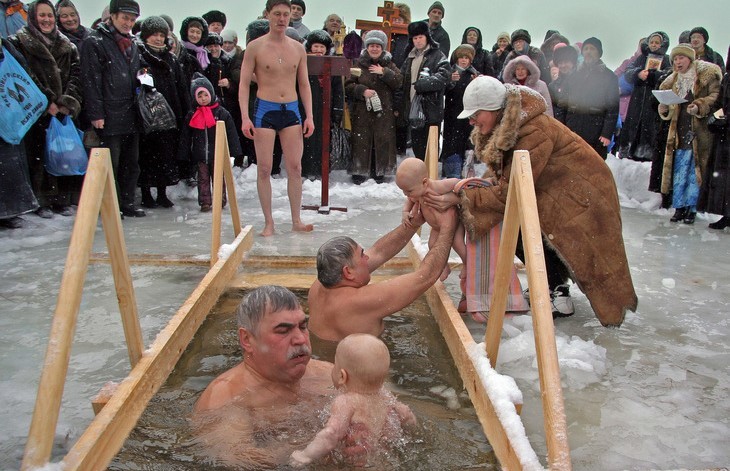
The fonts are prepared in advance. They cut a hole in the ice in the shape of a cross, and set up footbridges so that people can easily climb up after washing. Emergency Situations Ministry employees and ambulance doctors are always on duty on the shore.
You can find out where the sites are equipped and what time they open for bathing in city (or rural) churches. If there are changes related to the weather or the epidemic situation, they are also warned about them in advance.
Where you can swim
Each city has its own favorite places for Epiphany bathing. You can find out where to go in the churches. It is planned:
- It is planned to equip 227 sites in Moscow and the Moscow region;
- in Leningrad - 23;
- in Ufa - 7;
- in Samara - 4.
Ice holes will be cut in other cities and towns, both in natural and artificial reservoirs.
Addresses of baths in Moscow:

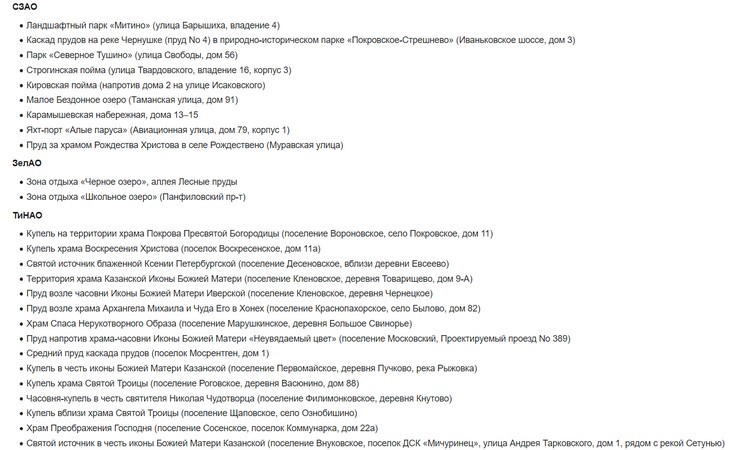
Addresses of fonts in Saint Petersburg:
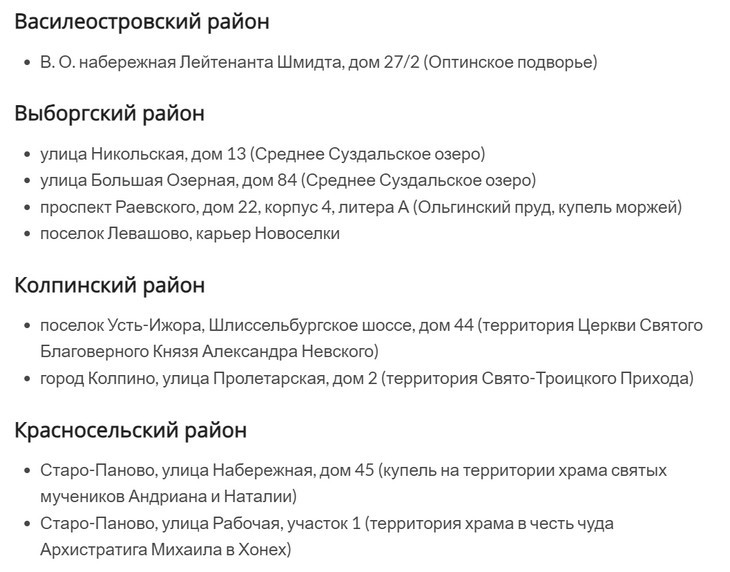

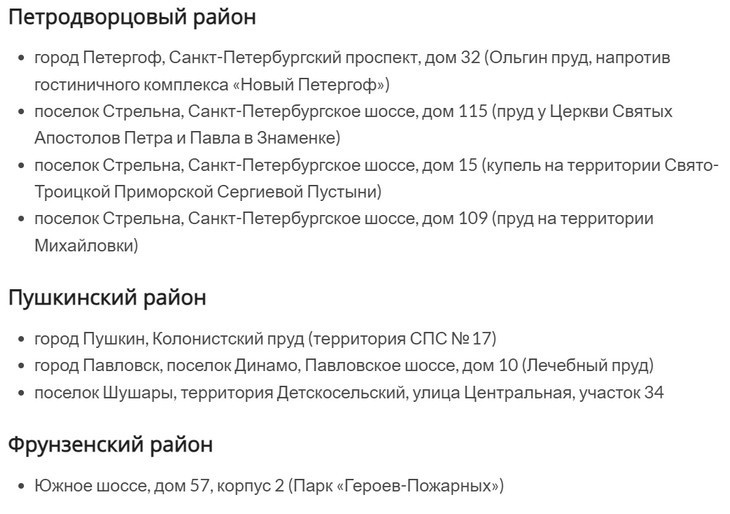
Addresses of fonts in Ufa:
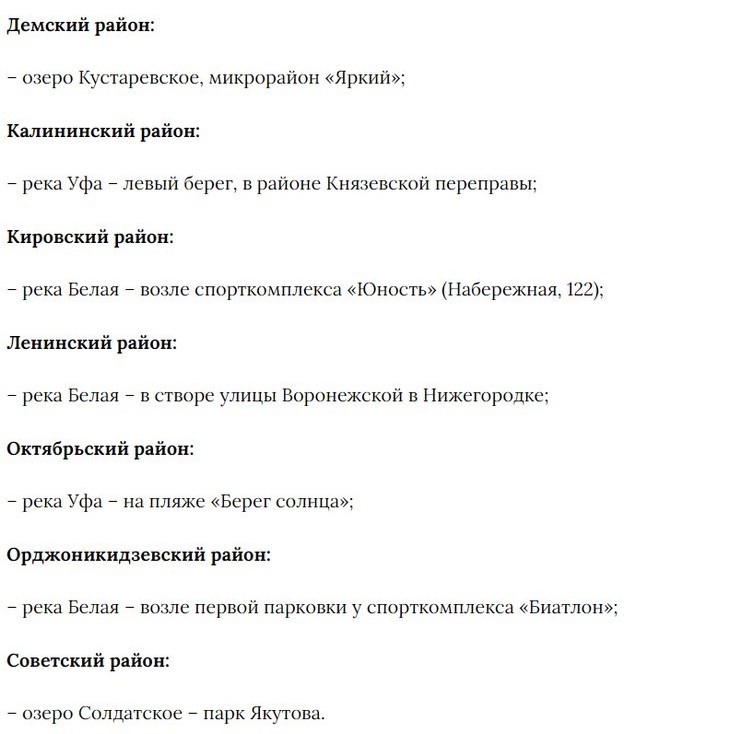
Addresses of fonts in Samara:

Rules for preparing and diving
Even those who practice Epiphany bathing every year should start preparing in advance. Beginners should prepare their body for the upcoming tests 3-4 months in advance:
- Introduce foods into your diet that increase hemoglobin production - red meat, liver, chicken breast, red and orange vegetables and fruits.
- Start hardening. The water temperature should be lowered gradually. First when rinsing your feet, then when washing your entire body. It is advisable to finish all water procedures with a contrast shower.
- Give up diets aimed at weight loss.
When dressing at home, you should only wear items of clothing that you can easily pull on your wet body. Clothes should be loose, without fasteners or buttons - a loose shirt, sweater, pants with an elastic band, felt boots or boots with wide tops.
Before diving, you need to do a few exercises to speed up blood circulation, stretch your limbs, and "check" your joint flexibility. Suitable exercises: arm swings, squats, bends.
You should descend into the water carefully, on the footbridge - it is not advisable to jump or dive sharply. When diving - hold your breath. Despite the ritual described in the Gospel - triple immersion - when bathing for the first time on Epiphany, it is better not to lower yourself into the water with your head, so as not to provoke a spasm of the vessels. The prayer - "In the name of the Father, the son ..." - is enough to whisper once.
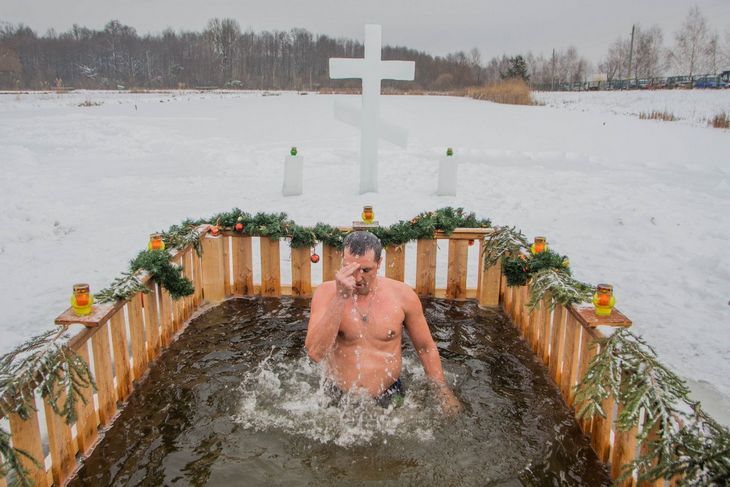
After leaving the cold water, you need to rub your body thoroughly - starting from the upper back and chest and ending with your feet. It is better if someone waits on the "shore" with a towel, which they will immediately throw over your shoulders while your skin is still warm; and with a thermos of hot tea.
Those who do not practice winter swimming should not experiment if the air temperature drops below -10...15°C.
History - where did bathing on Epiphany come from and what does it mean
Even in Ancient Rus', bathing in springs was associated with purification, and Byzantine emperors in ancient times performed ritual ablutions to get rid of sins.
The story described in the Gospel tells how 30-year-old Jesus Christ approached John the Baptist, who was in Bethabara on the banks of the Jordan River, and asked to perform the rite of Baptism. This event became a symbol of purification and transition to a new life, commitment to a new faith.
When Christianity came to Rus', the tradition of ritual ablutions had already taken deep root. Prince Vladimir himself was baptized on the banks of the Dnieper, and then blessed his army in the waters of the river. All the customs were combined and, despite the fact that the church does not require immersion, the Orthodox consider it their duty to demonstrate their devotion to the faith by immersing themselves three times in a consecrated spring.
There is another opinion explaining why the custom of swimming in an ice hole appeared. Christmastide is a period of joy. During it, Orthodox Christians walked, dressed up as devils, drank alcohol, sometimes abusing it. And in order to cleanse themselves before the face of the Lord, they washed away their sins with the help of ritual ablutions.
You need to plunge your head three times: “In the name of the Father, and of the Son, and of the Holy Spirit!”

Why and why do people bathe in ice holes on Epiphany now?
Until the 19th century, there were no mass bathings in Rus'. Sometimes men, demonstrating their daring, plunged into an ice hole, or priests imposed penance on Orthodox Christians, monks or novices who behaved too wildly during Christmastide as a punishment. But already in the 19th century, the tradition of immersion at Epiphany was revived in order to cleanse oneself spiritually.
Nowadays, diving into an ice hole has become a kind of competition. During the bathing, people not only cleanse themselves of sins, but also test their endurance. There are also those who dive into the river in the cold to get new sensations.
What you can and cannot do before, during and after bathing
When planning to dive into the Epiphany, many take their children with them. Even if teenagers are engaged in swimming, they should be constantly supervised. The subcutaneous layer of tissue has not yet fully formed, hypothermia occurs faster at a young age. From the cold, a child can forget that he can swim.
Before swimming, you need to eat - you can't swim in the ice hole on an empty stomach. Beginners should not dive into the water for longer than 1 minute. It is important to prepare in advance not only for the dive, but also for the ascent - inspect the bridges and handrails so as not to stumble.
Doctor's advice
You can only take a dip if you do not have chronic diseases associated with organs located in the head area:
- otitis;
- sinusitis;
- tonsillitis.
When diving, you need to hold your breath - it is better to cover your nose with your hand. If you have not been winter swimming, swimming in the cold for 5 minutes can cause hypothermia.
Deterioration of the condition during swimming will make it difficult to get up. Therefore, it is necessary to have someone waiting on the shore.
Symptoms that indicate that diving should be avoided:
- dizziness;
- "flies" before the eyes;
- nausea;
- painful sensations;
- chills that make your teeth chatter.
It may seem that they are caused by the temperature difference and will disappear after diving - at least that's what those who are nearby often say. Nothing will pass - the condition will only worsen. While there is strength, you need to get out of the water.
Children under 7 years of age should not be taken into the ice hole, even if they have been hardening themselves. The immune system at preschool age functions unstable, and it is difficult to predict the consequences for the body.
Neither before nor after diving - you can not drink alcohol. Alcohol in the cold has a negative effect on blood vessels. They quickly expand, and then almost instantly narrow. One of the consequences of a spasm is a stroke.
In addition, under the influence of alcohol, the perception of heat and cold decreases. It seems that you have warmed up, but in fact, this has not happened. The consequences of hypothermia are respiratory diseases, bronchitis and pneumonia.
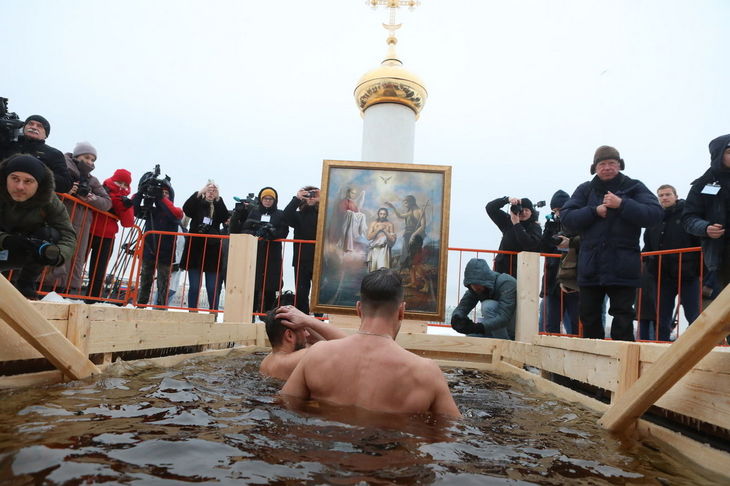
What the priest says
Since Epiphany bathing in an ice hole is not a religious custom, but a beautiful tradition, the clergy express only their personal attitude to what is happening.
Some believe that for many this is an opportunity to join the Great Feast. But they warn that swimming "for company" or "for sport" will not change anything. But if after the dive they are explained the symbolism of what is happening, they will understand what commitment to faith means and, perhaps, will visit churches in the future.
But there are also priests who believe that Epiphany and bathing in an ice hole have nothing in common. Jesus Christ was baptized in the Jordan River, not in an ice hole. If you want to follow the Russian custom, go ahead, but don't expect a reward from God after that. The meaning of the holiday will not change whether someone jumped or didn't jump into the river in the cold.
All clergymen agree that it is not worth taking a shower on the night of the Epiphany. This custom appeared recently, and it distorts the essence of the holiday. The immersion of the Lord has nothing in common with water procedures.
Benefits and harms of swimming in an ice hole
After they plunged into the ice hole on Epiphany, believers experience euphoria. They felt closer to Christ and proved their commitment to the faith.
If we consider diving for health purposes, then the beneficial properties of winter swimming are:
- increasing immunity;
- strengthening of blood vessels;
- testing the ability to mobilize in stressful situations.
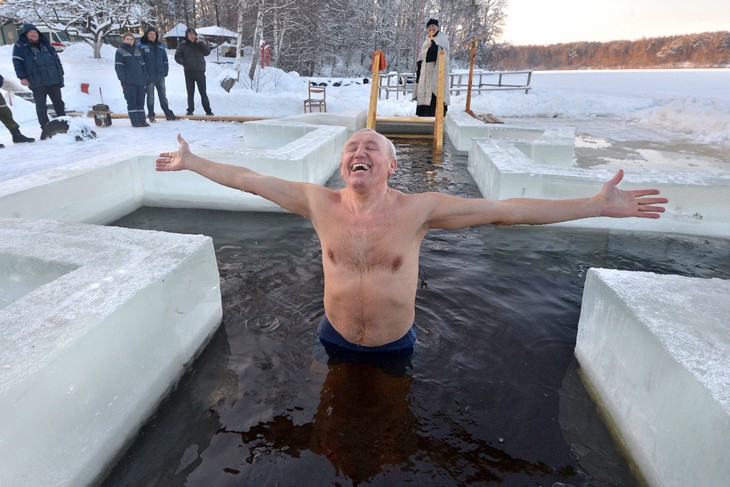
But hypothermia only brings harm to an unprepared person. Chronic diseases are aggravated, cold-related pathologies appear. Those who have bathed most often seek help with laryngitis, rhinitis, tracheitis, bronchitis, pyelonephritis and cystitis. It is much more frightening if the consequences of bathing without preliminary preparation are strokes, heart attacks and bronchospasms caused by reflex respiratory arrest.
Contraindications, who should not swim
List of absolute contraindications to bathing on Epiphany:
- age over 73 years;
- pregnancy;
- chronic diseases.
You cannot dive into the ice hole if you have chronic diseases: ENT and reproductive organs, cardiovascular, respiratory and urinary systems, kidneys, neuropsychiatric disorders.
Frequently asked questions
What is the name of the ice hole where believers plunge during Epiphany?
The font is called "Jordan" - it is shaped like a cross. The name recalls a religious event - the immersion of Christ during baptism in the river near the city of Bethabara.
Is it possible to swim during menstruation?
During menstruation, women should refrain from participating in religious rites. Therefore, they should not immerse themselves in holy water. But they can take part in the service, confess, and receive communion. If earlier the clergy spoke out against it, now it is allowed.
How many degrees is the water temperature on Epiphany?
In fresh water of the font T can be from 0 to +4°C. The feeling that it is warm is deceptive.
What should a woman wear in an ice hole?
If a woman goes down into the Jordan in a bathing suit, we can conclude that she has a sporting interest. Orthodox believers should behave modestly, and if they decide to plunge, prepare for the sacrament in advance. You should wear a loose, light, long shirt that does not restrict movement, with sleeves that cover the forearm by at least 1/3.
Why do people swim in ice holes from January 18 to 19?
The tradition appeared because at this time the Christian holiday of Epiphany is celebrated, in honor of the religious event - the baptism of Christ in the Jordan River. But it must be said that this number is calculated approximately, when compiling the remaining dates of the Savior's life during his earthly life.
Will you get sick after swimming on Epiphany?
Many believe that since those who dip dedicate their act to the Lord, it is impossible to get sick. This opinion is wrong - everything depends on the capabilities of the body. If you prepare in advance, then bathing will only have a beneficial effect.
Do baths or showers replace immersion in a hot tub?
As already mentioned, winter immersion in an ice hole is not a religious ritual, but a folk custom. It has nothing to do with Epiphany. And even more so, one should not generalize water procedures at home with a religious event.
If you decide to join the tradition, you should choose a specially equipped font. There will definitely be rescue workers on duty near it, who will help avoid trouble. And priests, who will definitely be near the ice hole, will tell you what this beautiful custom is connected with, and bless those who show their commitment to faith, demonstrating strength of spirit.


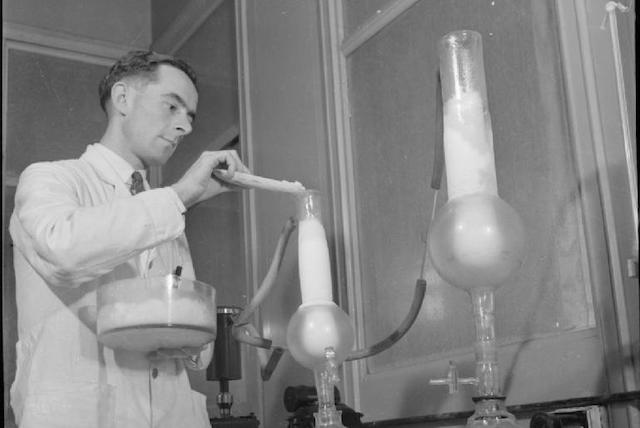
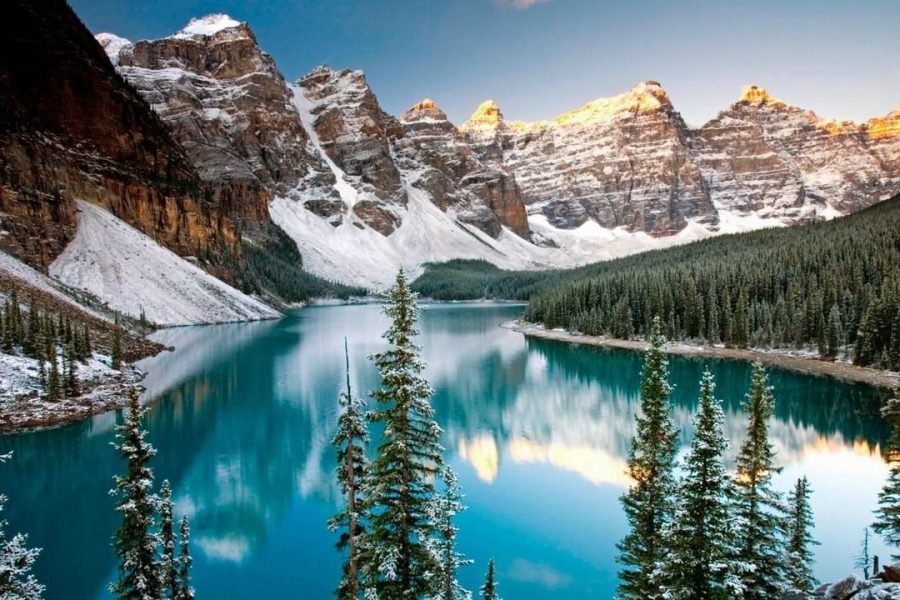



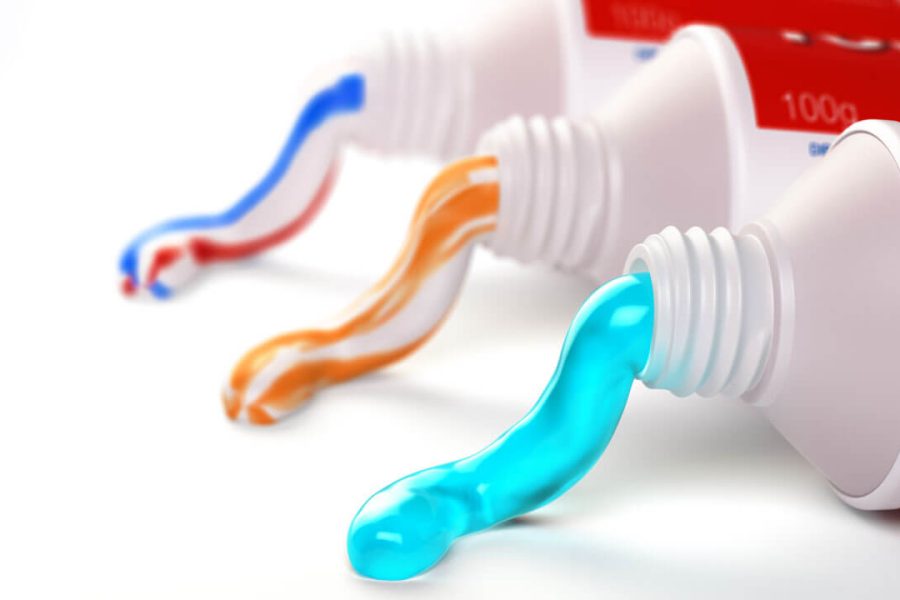






Оставить Комментарий